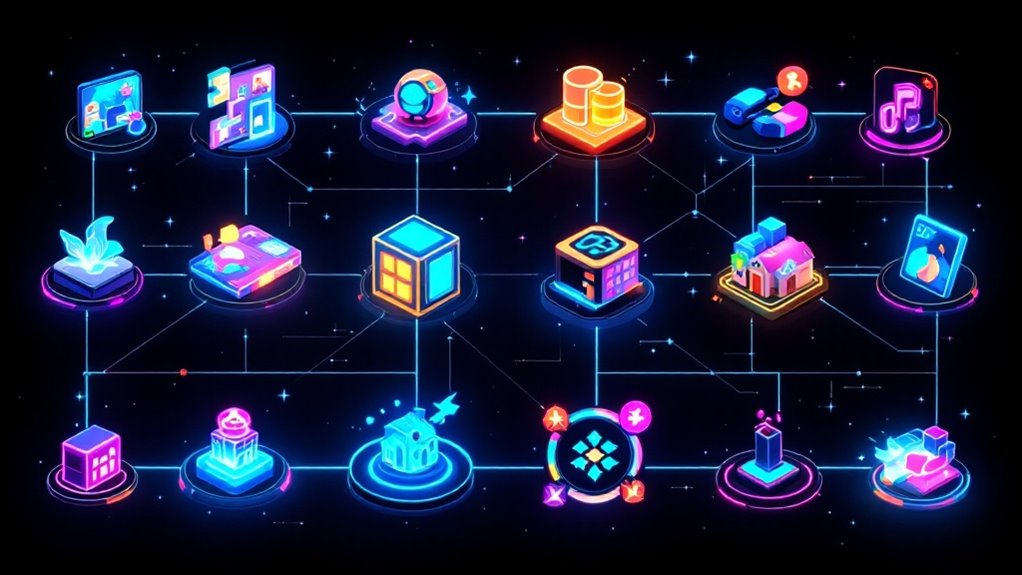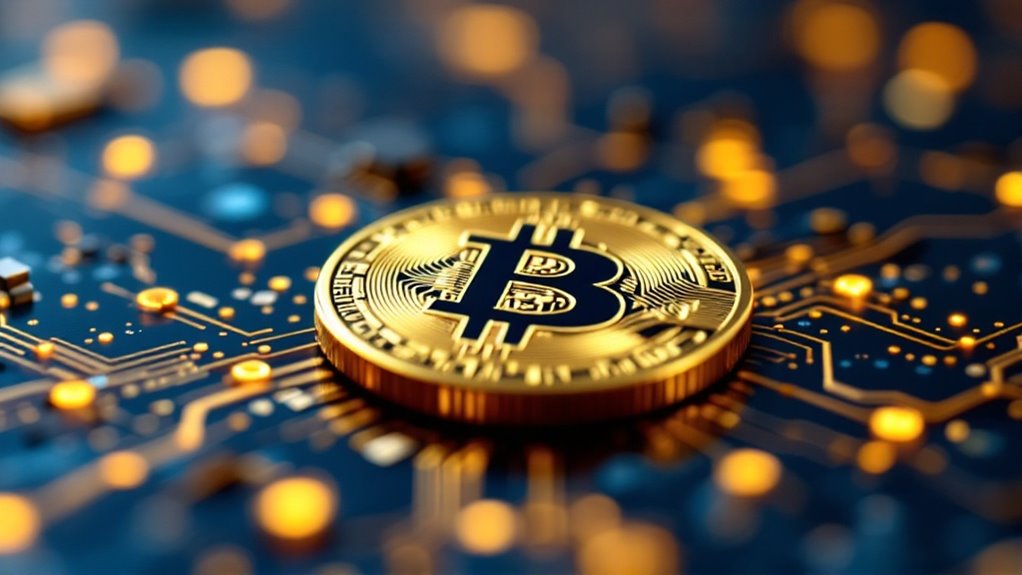NFTs are revolutionizing industries far beyond the digital art world. In gaming, players can truly own and trade virtual items across different games, while musicians forge deeper connections with fans through exclusive digital experiences. The real estate sector sees streamlined property transfers, and supply chains gain unprecedented transparency. Even charitable organizations are transforming donation tracking with blockchain technology. These innovative applications merely scratch the surface of NFTs' potential to reshape how we interact with digital ownership.

NFTs are transforming the digital landscape far beyond their initial reputation as mere collectible art pieces. Like digital Swiss Army knives, these versatile tokens are carving out new possibilities across multiple industries, reshaping how we interact with digital assets and real-world items alike.
In the gaming world, NFTs have sparked a revolution that would make traditional arcade gamers do a double-take. Players now truly own their hard-earned virtual items, trading rare weapons and character skins like precious baseball cards. This ownership extends beyond single games, with items floating seamlessly between different virtual worlds like digital butterflies. The technology behind NFTs has created new revenue streams for game developers. The shift to NFT gaming has enabled players to earn through play-to-earn models like Axie Infinity. The integration of blockchain technology ensures verifiable ownership and authenticity of these virtual assets.
NFTs transform gaming into a digital marketplace where virtual treasures become real assets, crossing game boundaries like magic.
The traditionally slow-moving real estate sector has found an unexpected ally in NFTs. Gone are the days of drowning in paperwork and waiting weeks for property transfers. These tokens have streamlined the process, making it possible for anyone to own a slice of prime real estate, just as easily as buying a cup of coffee.
Musicians, long frustrated by streaming services' minimal payouts, have discovered a new stage in the NFT space. They're now selling exclusive tracks and experiences directly to fans, cutting out the middleman and creating intimate digital fan clubs that would make old-school fan mail look quaint.
Perhaps most intriguingly, NFTs are revolutionizing how we manage our digital identities and intellectual property. Like a digital passport stamped with unforgeable ink, these tokens help creators protect their work while enabling them to earn recurring royalties.
Supply chain managers have also embraced NFTs, using them to track products from factory floor to store shelf with unprecedented accuracy.
Even the charitable sector hasn't remained immune to the NFT wave. Donors can now track their contributions with crystal-clear transparency, turning traditional donation receipts into dynamic digital certificates that showcase real-world impact.
This marriage of technology and philanthropy creates a powerful tool for social good, proving that even in the digital age, human compassion finds new ways to express itself.
Frequently Asked Questions
How Can I Protect My NFT Investments From Market Volatility?
Investors can protect NFT investments from volatility through diversification across multiple categories, implementing strict risk management strategies, dollar-cost averaging, setting stop-loss orders, and maintaining a long-term investment perspective.
What Blockchain Platform Is Most Secure for Minting NFTS?
Ethereum remains the most secure blockchain for minting NFTs due to its extensive decentralized network, battle-tested smart contracts, and robust security protocols. Its established infrastructure offers superior protection against potential vulnerabilities.
Can NFTS Be Transferred Between Different Blockchain Networks?
Yes, NFTs can be transferred between different blockchain networks using bridge protocols and cross-chain solutions like LayerZero, Wormhole, and Chainlink CCIP. These transfers typically utilize burn-and-mint or lock-and-mint mechanisms.
What Happens to My NFTS if the Hosting Platform Shuts Down?
If a platform shuts down, NFTs remain on the blockchain but media access may be lost. Using decentralized storage solutions like IPFS or Arweave helps guarantee asset preservation regardless of platform status.
Are NFT Transaction Fees Different Across Various Marketplaces?
Yes, NFT transaction fees vary considerably across marketplaces. OpenSea charges 2.5%, Rarible charges 2.5% to both parties, SuperRare takes 15% on primary sales, while X2Y2 maintains a lower 0.5% fee.









